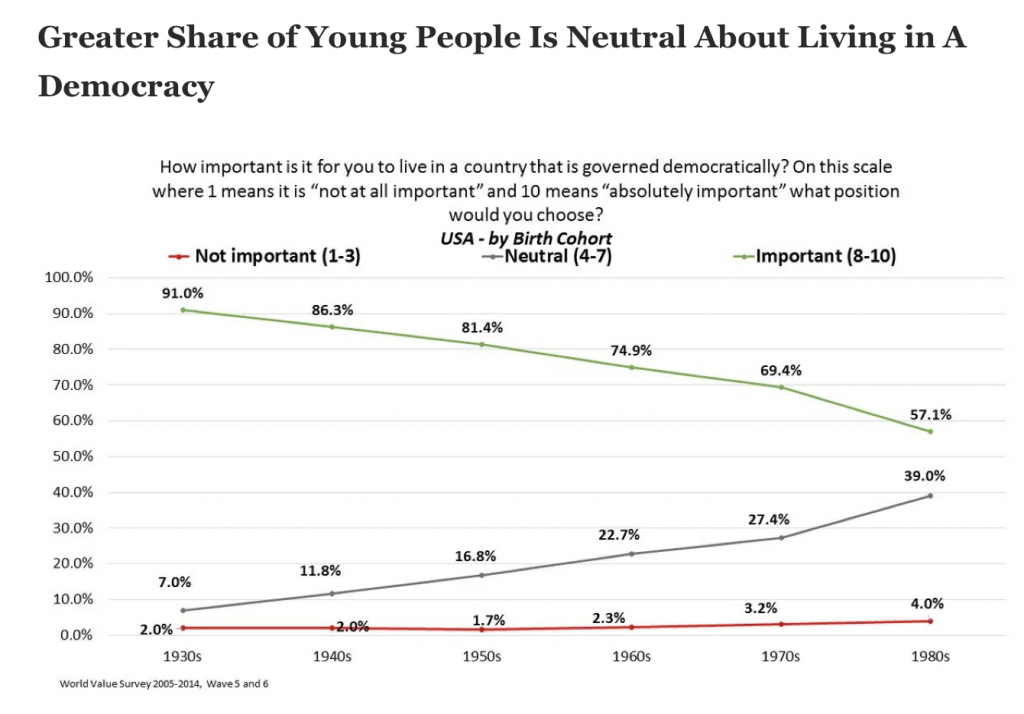There have been many discourses over the past several years on whether authoritarianism is on the rise, both in the United States and the world. There are many articles and opinion pieces published saying that authoritarianism is increasing in the United States and our world and others that disagree. Interviews with other citizens also contribute to the lack of clarity on the question- is authoritarianism on the rise?
A significant contributor to the feeling of many, that authoritarianism is on the rise, was the 2016 American presidential election. For example, an opinion piece was published by The Washington Post during this period. In the piece, the author, Yascha Mounk, describes the increasing share of young people critical towards democracy [Appendix A], Americans being more open to a “strong leader”, and increasing radicalism within the American populace. But are the worries of Yascha Mounk credible?
Other’s disagree with Mounk, such as Staffan Ingemar, a professor at the University of Gothenburg. Ingemar agrees with many of the statistics that Mounk presents, but Ingemar still has hope. Many countries were able to revert their autocratic evolution and strengthen their democracies, such as Bolivia, Moldova, Ecuador, the Maldives, North Macedonia, Slovenia, South Korea, and Zambia.
Reflecting the inconsistencies amongst those who have published on the topic, normal citizens also disagree on the question. Senior history major at the University of Alaska Anchorage believes, “authoritarianism is on the rise.” Where other senior history major from Morningside, Austin Freiberg, says, “I think there are masses that just want to have control and they speak their minds,” but still remained confident in democratic freedoms lasting. Other citizens, such as Blake Brown, a senior at Clarkson College, see authoritarianism rising in other countries, but not the United States
Citizens of democracies seem to be conflicted on the nature of authoritarianism and if it is rising. Outside of the statistics, as Mounk notes, people are complacent towards the idea. Is there a need for action against a perceived rise in authoritarianism? The scope of the question is broad, and the feelings of most conflict.
[Appendix A]
